Leadership in action: ITCILO Directors on six decades of impact and innovation
Leadership in action: ITCILO Directors on six decades of impact and innovation
A Directors’ roundtable reflected on the ITCILO’s 60-year legacy and vision for the future
2 April 2025

Photo © ITCILO/Gabriella Di Muro
As part of ITCILO's 60th anniversary celebrations, past and present Directors gathered for a landmark roundtable to reflect on six decades of leadership, challenges, and the Centre’s evolving role in global capacity-building. Held on 27 March 2025, the discussion brought together Jean-François Trémeaud (1989–2006), François Eyraud (2006–2011), Patricia O'Donovan (2011–2015), Yanguo Liu (2016–2021), Giuseppe Casale (2022–2023), and Christophe Perrin (2023–present) for a powerful exchange on ITCILO’s legacy, achievements, and future.
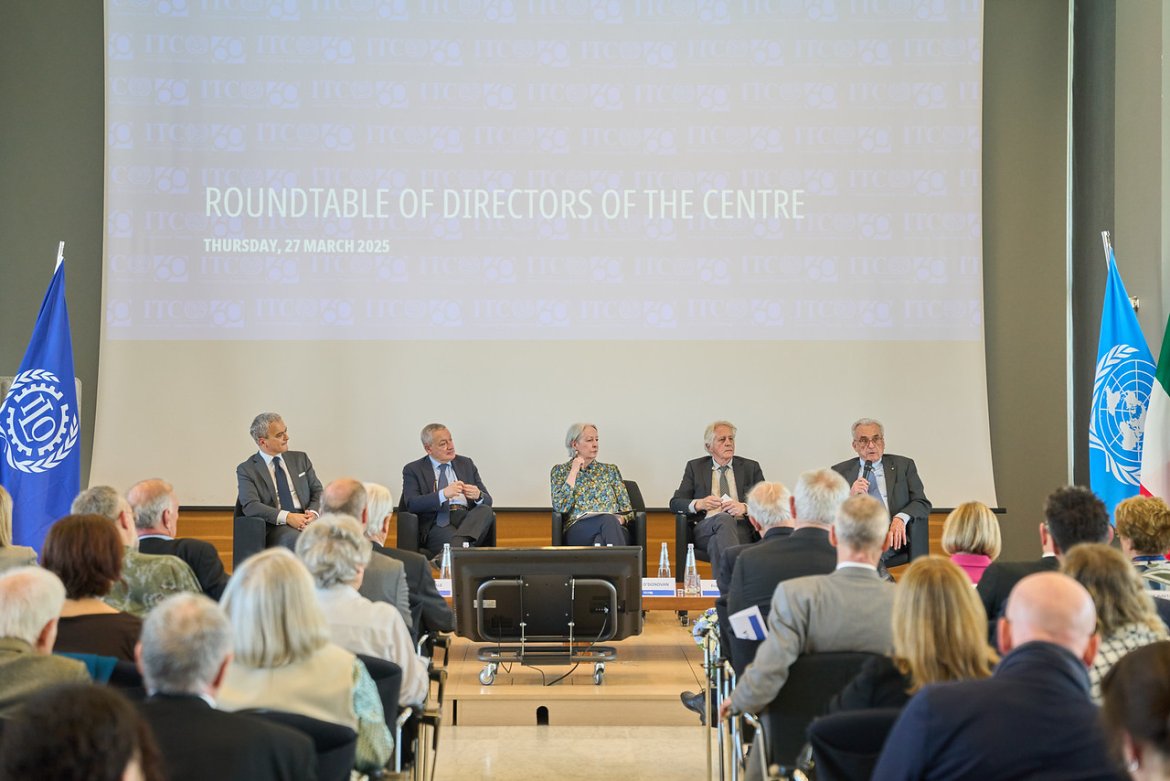
Photo © ITCILO/Gabriella Di Muro
Moderated by Deputy Director Paola Babos and Director of Training Andreas Klemmer, the discussion celebrated ITCILO’s evolution, built on six decades of activities. Reflecting on this legacy, the Directors underscored the pivotal role of collaboration, innovation, and shared purpose. Their dialogue reaffirmed the Centre’s role as a leader in international capacity development and knowledge sharing, and its commitment to the International Labour Organization’s mission to advance social justice and promote decent work for all.
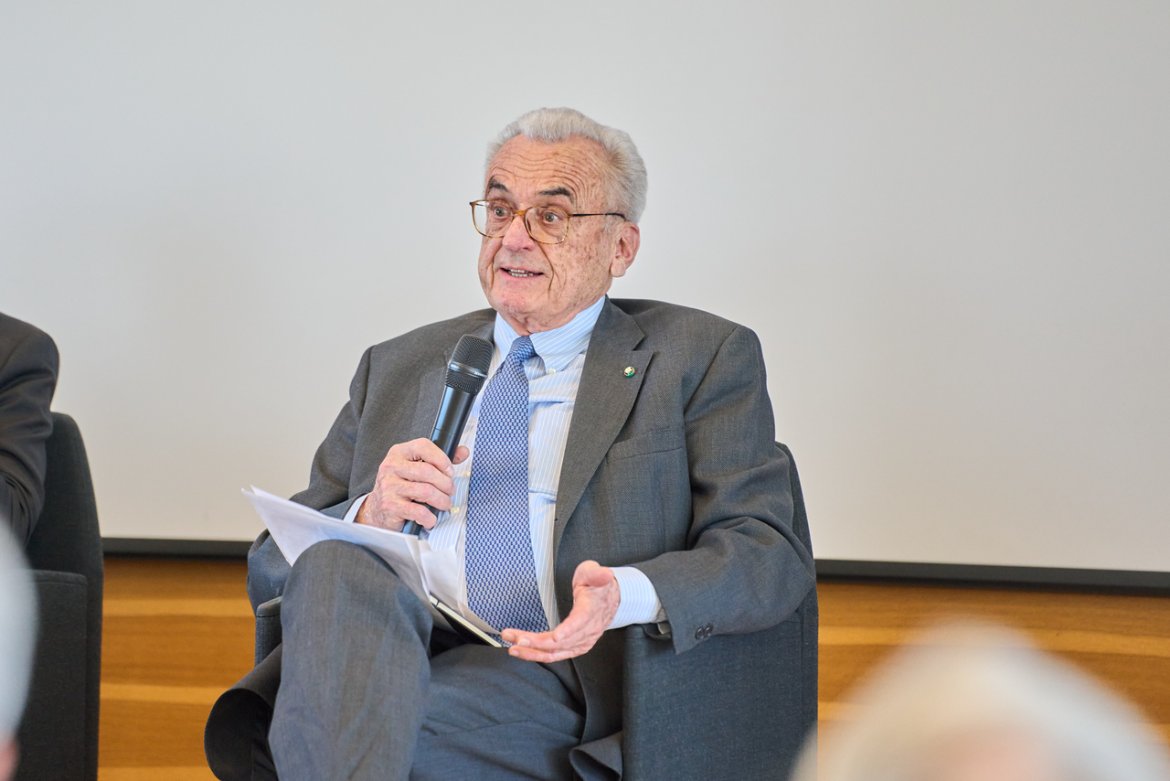
Photo © ITCILO/Gabriella Di Muro
Jean-François Trémeaud opened the discussion by revisiting the uncertain context of his appointment in 1989. Amid institutional challenges, he was tasked with preparing a plan for the Centre’s closure. Instead, he initiated a process of renewal rooted in trust-building and strategic partnerships.
“We were asked to plan for closure. But instead, we chose to plan for renewal—anchored in cooperation, openness, and the conviction that the Centre could be made useful, not just operational,” he explained.
For Trémeaud, the Centre’s potential lay in its capacity to uphold the ILO’s values and provide space for meaningful international collaboration.

Photo © ITCILO/Gabriella Di Muro
François Eyraud shared insights on the importance of extending the Centre’s reach, particularly by establishing stronger links with academia and other international institutions. A key achievement during his tenure was the launch of the Turin School of Development, established in partnership with leading universities and UN agencies.
“ITCILO’s impact is profound because it does not only promote decent work, it creates spaces where these principles are actively explored and applied. The Turin School of Development has been instrumental in connecting younger generations to the values of the ILO,” he remarked.
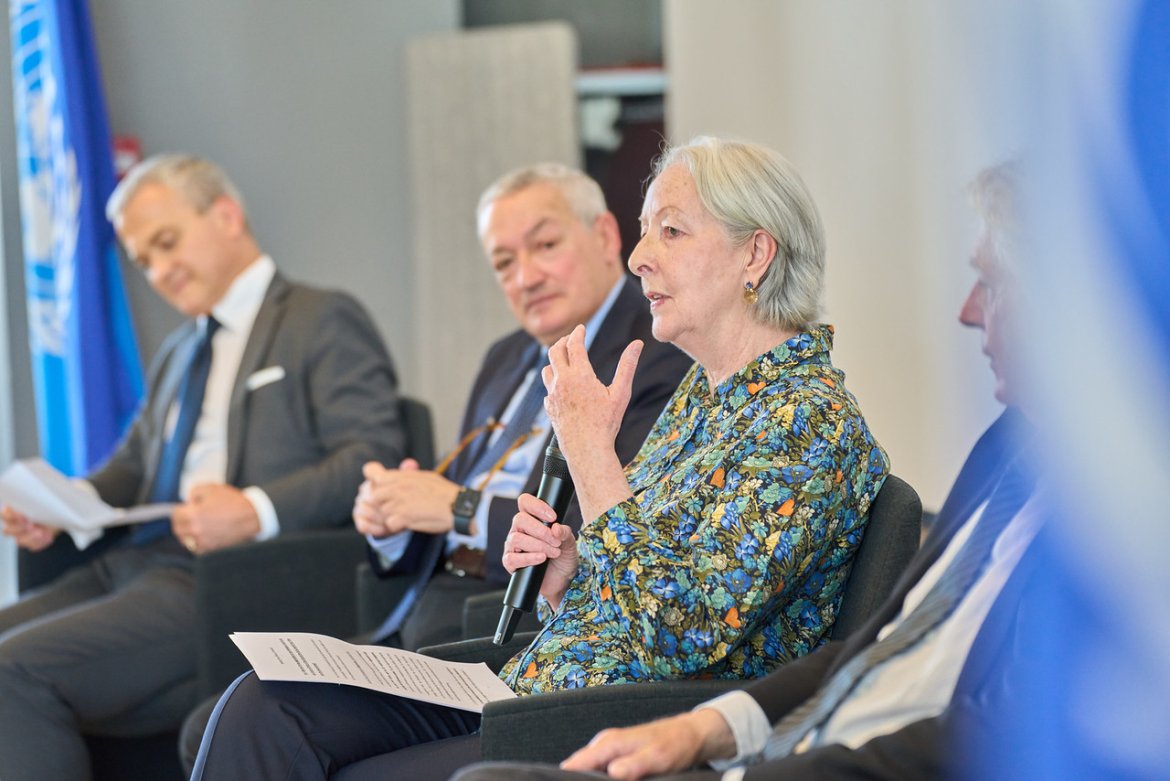
Photo © ITCILO/Gabriella Di Muro
As the first woman to lead the Centre, Patricia O’Donovan underscored the importance of inclusive practices and equitable representation, both within the Centre and across its programmes. She emphasized the power of diversity in enriching learning experiences and strengthening institutional impact: “The Centre brings together people from all regions, professions, and backgrounds, creating space for mutual learning. In those exchanges, decent work and social justice become tangible, shaped by the experiences participants share and take back to their own contexts.”
During her tenure, the Centre introduced gender audits, improved gender balance in training participation, and embedded diversity into its operations and programme design.
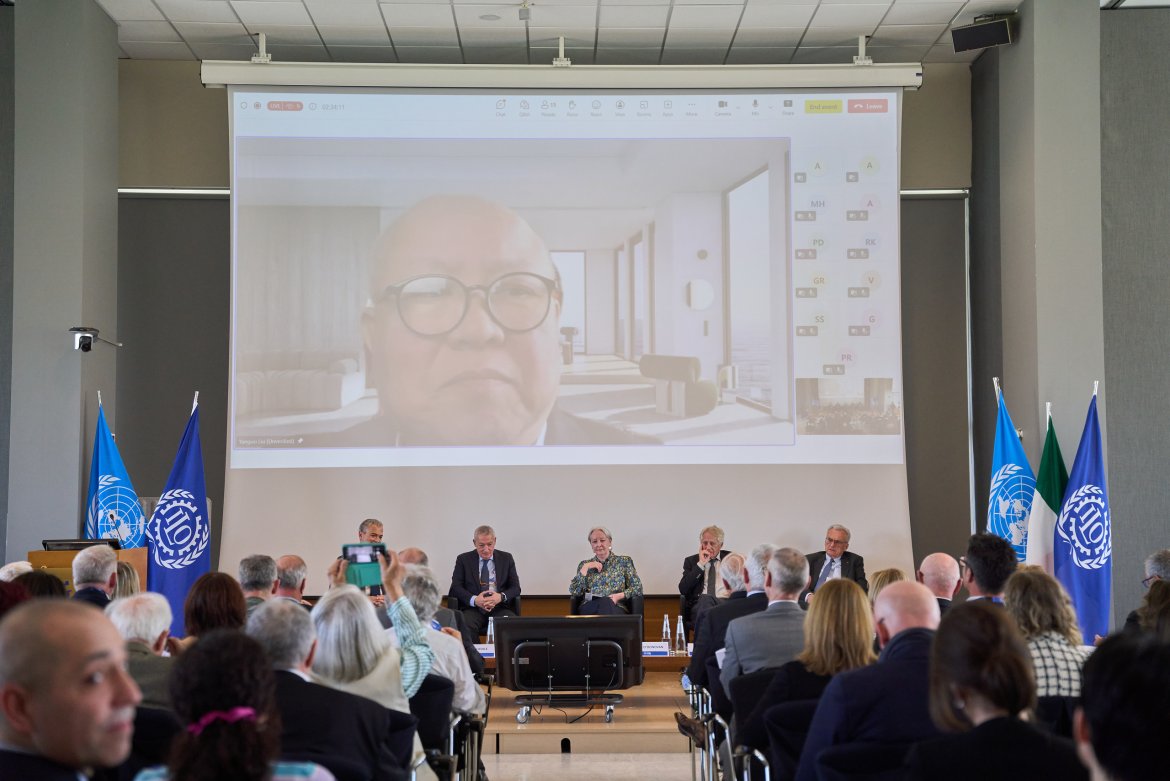
Photo © ITCILO/Gabriella Di Muro
Joining the Roundtable remotely from Beijing, Yanguo Liu reflected on the challenges posed by the COVID-19 pandemic. With in-person learning suspended, the Centre undertook a rapid and comprehensive shift to online delivery. Despite the disruption, the Centre remained committed to its mission, and received formal recognition from the ILO Governing Body for its effective response.
“We transformed online learning from a complementary tool into a lifeline, ensuring continuity, safety, and even new opportunities. This experience proved that resilience and innovation are among the Centre’s greatest strengths,” stated Liu.
The lessons learned during this period continue to inform the Centre’s digital and hybrid training models.
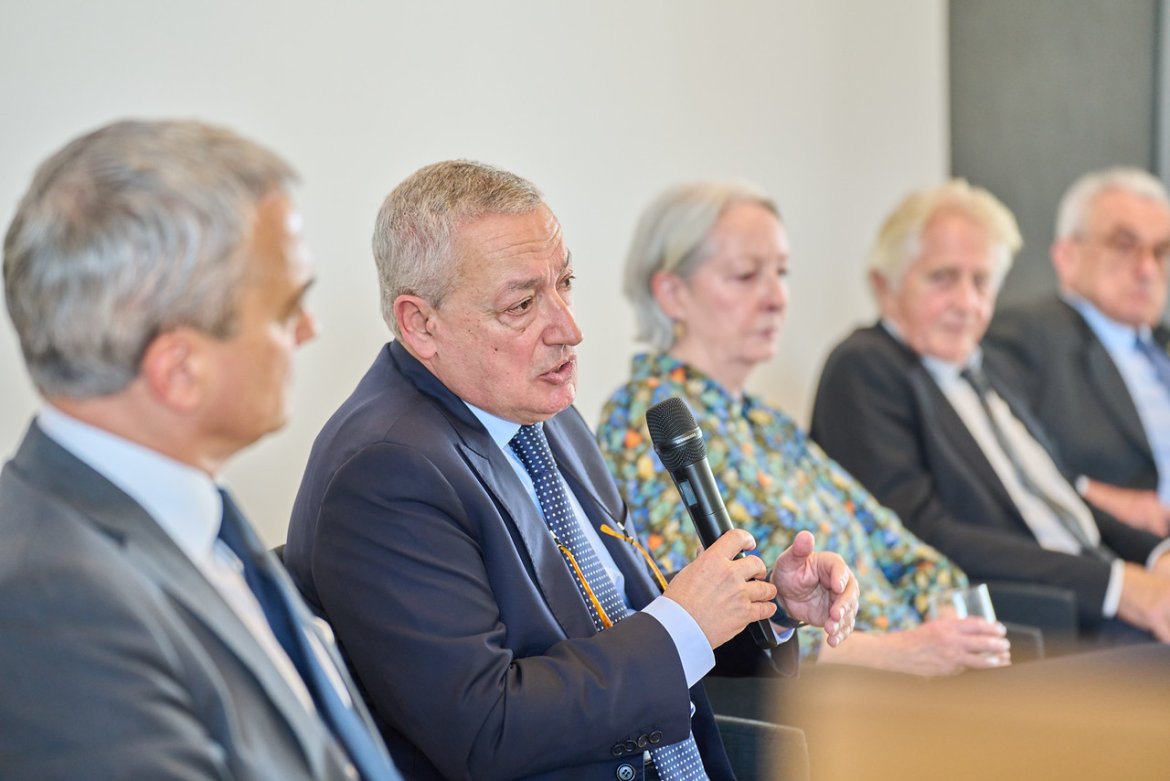
Photo © ITCILO/Gabriella Di Muro
Giuseppe Casale focused on the importance of innovation and participatory learning, particularly in the context of a changing world of work. He highlighted the need to maintain inclusive, learner-centred approaches, and to prepare constituents and stakeholders for emerging global challenges, including the impact of digital transformation and artificial intelligence.
“It is important that we avoid vertical approaches and continue to prioritise engagement and inclusion,” he noted. “This is what distinguishes the Centre and enables it to respond effectively, even in uncertain times.”
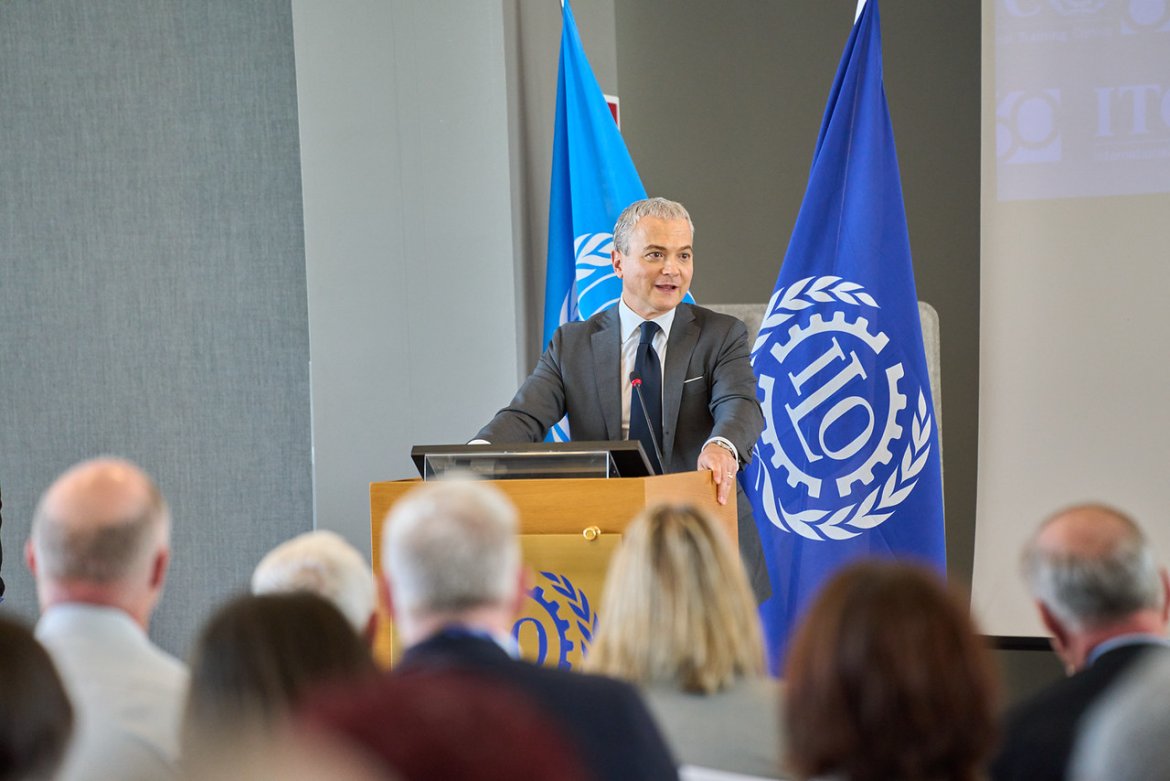
Photo © ITCILO/Gabriella Di Muro
In closing, Director Christophe Perrin honored the leaders who shaped the Centre’s legacy, emphasizing the shared values that continue to drive its success: “At its core, the true essence of an institution like ours lies not just in its mandate and objectives, but in the people who bring them to life at every level.”
His words captured the spirit of the Roundtable: a moment to honour the people, partnerships, and principles that continue to drive the Centre forward. He continued: “It is through our collective commitment and collaboration that we succeed. Our deep attachment to the Centre stems from this shared dedication and the real impact we create together.”
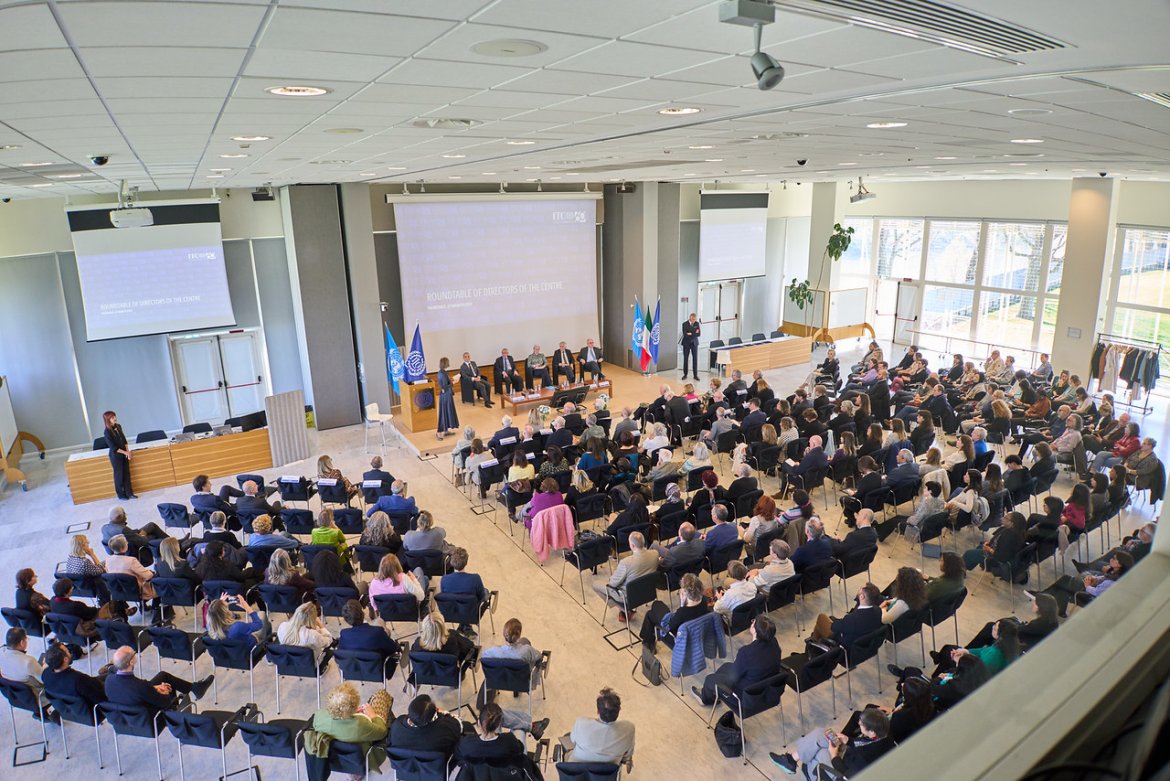
Photo © ITCILO/Gabriella Di Muro
As the Centre celebrates its 60th anniversary, the Roundtable served not only as a tribute to its history, but as a renewed commitment to delivering state-of-art training services, driving multilateral cooperation, and shaping the future of global capacity building and knowledge sharing. In today’s evolving world of work, the Centre’s mission remains clear: to support transformative learning that empowers people, strengthens institutions, and helps advance social justice and promote decent work for all.
“The ITCILO has faced difficult moments, even the risk of closure,” said Director Christophe Perrin. “Yet, through adaptability and resilience, it has continued to prove its value. This ability to stay relevant and responsive is what makes me deeply optimistic about its future, despite the challenges ahead.”


